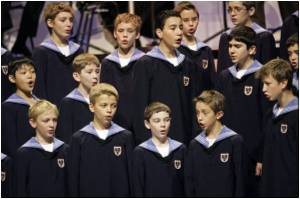The differences in pronunciation on either side of the Atlantic have been well known since Fred Astaire and Ginger Rogers sang 'Let's Call The Whole Thing Off' in the 1937 film 'Shall We Dance'.

A new study, however, has found that British English is alive and well, and is holding its own against its American rival, reports the Daily Mail.
Linguistic experts at the British Library have found that many British English speakers are refusing to use American pronunciations for everyday words such as schedule, patriot and advertisement.
They also discovered that British English is evolving at a faster rate than its transatlantic counterpart, meaning that in many instances it is the American speakers who are sticking to more 'traditional' speech patterns.
"British English and American English continue to be very distinct entities and the way both sets of speakers pronounce words continues to differ, said Jonnie Robinson, curator of sociolinguists at the British Library.
"But that doesn't mean that British English speakers are sticking with traditional pronunciations while American English speakers come up with their own alternatives," he said.
Advertisement
As part of their study, the researchers recorded the voices of more than 10,000 English speakers from home and abroad.
Advertisement
They were also asked to pronounce a set of six different words, which included 'controversy', 'garage', 'scone', 'neither', 'attitude' and 'schedule'.
The researchers then examined the recordings made by 60 of the British and Irish participants and 60 of their counterparts from the U.S. and Canada.
They found that in many cases the differences were down to the fact that the British English speakers were moving away from pronunciations, which would have been regarded as standard just 50 years ago.
In the case of 'garage' and 'controversy' for instance, the US volunteers were more likely to use the British English pronunciations favoured or given prominence by the Oxford English Dictionary (OED).
The library also found that American English was making advances in at least one respect - almost half of British English speakers were now saying schedule as skedule.
Source-ANI









